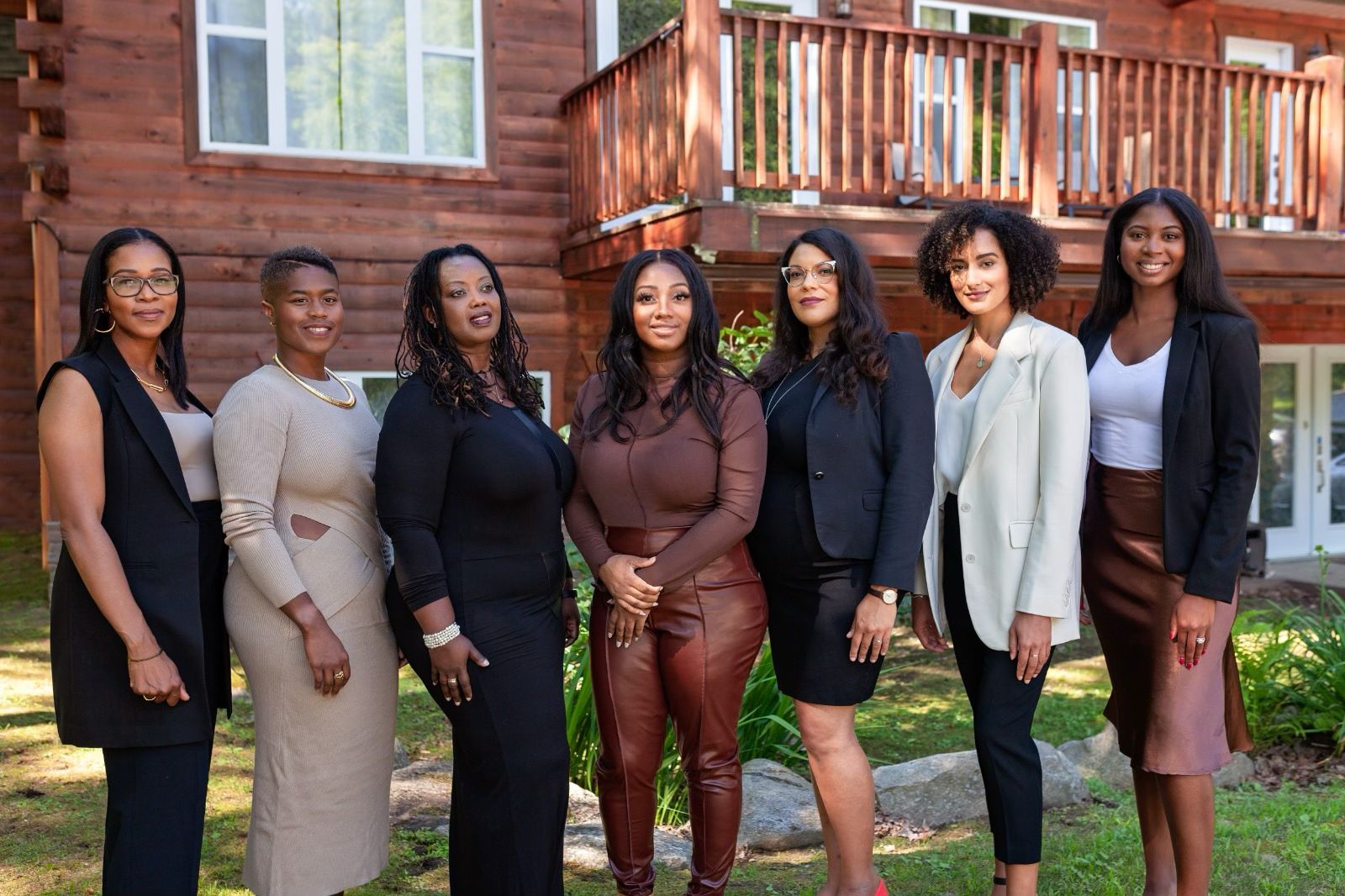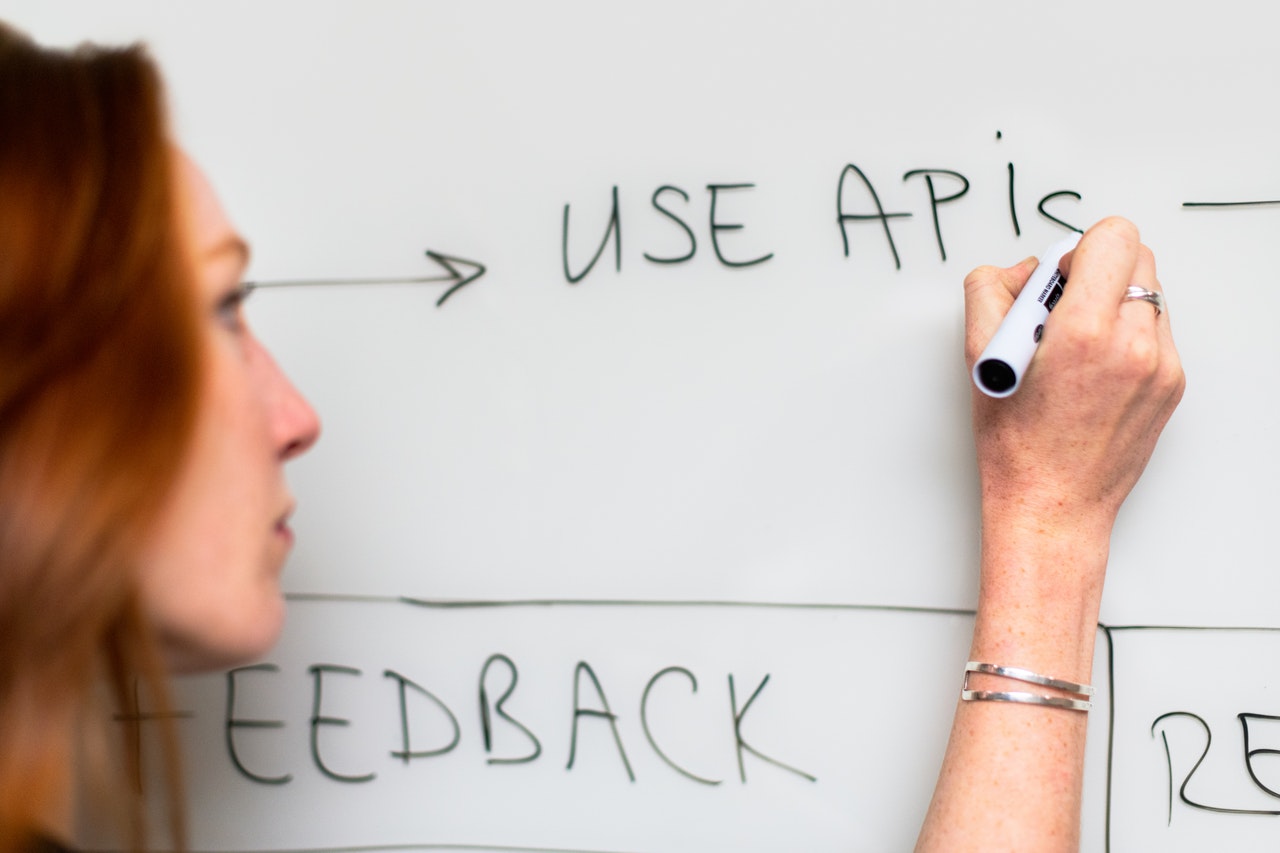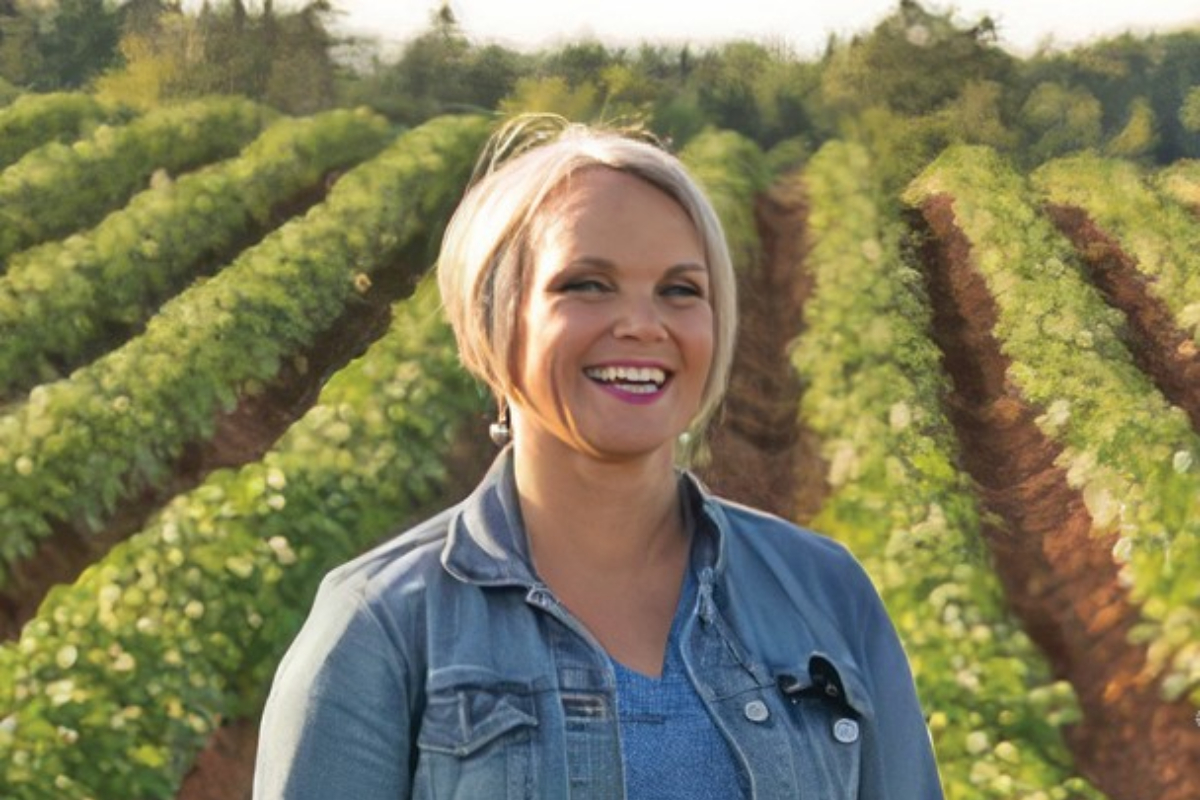Photo courtesy of Jennifer Oraka.
When Amoye Henry and Adeela Carter, founders of Pitch Better, would travel to the U.S. for business events, they would see many networking opportunities for women of color. There were also large incubators for entrepreneurs to launch and grow their businesses. However, the Canadian business landscape offered fewer opportunities for women of color. There were mostly motivational events, brunches, and galas with speakers promising a road to riches. Henry recounts that, while speakers told guests they could be millionaires through entrepreneurship, they wouldn’t offer a tangible roadmap.
“We were curious about that, and we started to look at what were the opportunities to help Black women entrepreneurs in Canada build scalable businesses, and they were minuscule,” Henry says.
Amoye Henry, along with board co-chair Cierra Madore and Membership and Partnerships Manager Peta Ann Leon, discuss the influence Pitch Better has had on the Canadian entrepreneur landscape and what that means for Black-owned businesses.
Tell us the story of how Pitch Better got started.
Amoye: We conducted research and recognized that there was a government fund that had [been distributed] to entrepreneurs, but only two Black women of the 300-plus applicants got access to the funding. Once we realized that Black women were the fastest growing group of entrepreneurs in North America, but only 0.6 per cent of Black women entrepreneurs in North America were successful in raising funds, we recognized that was a problem.
Black women entrepreneurs didn’t know they could even apply for various options for funding — which aren’t marketed to our networks and communities — and the application processes are often extremely overwhelming. Pitch Better was birthed because we recognized all of these challenges in the private equity space, and ironically and sadly at the federal, [provincial], and city levels as well.
Pitch Better helps Black- and Indigenous-led startups acquire funding through data collection. How exactly does this happen?
Cierra: Pitch Better does have data collection and research to enable our programming; however, the access to capital as an entrepreneur is not directly correlated to the research. We’ve developed a number of different programs that are helping Black and Indigenous women access capital across the ecosystem.
Peta-Ann: It began with Secure the Bag — one of our key workshops that Amoye and Adeela were facilitating across Canadian provinces. The more recent iteration of that is our Modern Hustle Collective series. We just got back from Halifax a couple of weekends ago, facilitating this workshop. We helped Black women entrepreneurs build the skills to pitch, have that business plan, talk to investors and funders about value creation, and be able to complete applications for debt or equity financing.
Cierra: To come back to the data collection piece, it tells us that only 0.6 per cent of Black women are receiving this funding, and [yet] we know there’s no shortage of it across Canada. There’s a systemic barrier. That data has helped us create programming. We’re just at the beginning of what we intend to do in this space.
What feedback have you received so far?
Amoye: We were speaking to a government official based in the Atlantic who had actually read our reports and commended us on how they have been foundational tools in providing insight, [saying] that our study has been pivotal in understanding some of the gaps faced by underrepresented entrepreneurs. Additionally, ecosystem partners tell us all the time that they use our reports and data to build cases for funding and to advocate for policy change.
We also received a note on LinkedIn the other day from a workshop participant stating that they submitted their first ever pitch deck and the session they had with Peta-Ann helped to make it better. They said it was so amazing to see a national board consisting of Black women from all over Canada in executive positions come together to support this organization that has a focus to elevate Black women entrepreneurs. This makes us feel like we’re on the right path. Black women are so industrious and powerful.
How have your initiatives changed the business landscape?
Cierra and Peta-Ann: We’re often interfacing with government officials and our research is informing policies and programming. There’s been a number of new programs from the government — there’s a Black Ecosystem Fund and the Black Entrepreneurship Knowledge Hub, so that’s very promising.
On the entrepreneur side, we’ve also supported hundreds of entrepreneurs across different industries to pivot their business through the pandemic to create more sustainable business models. We saw this especially after our $500,000 grant program in partnership with Facebook Canada, CILAR, and Black Opportunity Fund.
What traits do you think are important for entrepreneurs to have?
Peta-Ann: Entrepreneurs can be who and what they want to be. They can choose the traits that help them succeed the most. For me, being extremely structured and disciplined helps me, but some entrepreneurs operate in what I would see as chaos. You have to go with what works for you.
Amoye: Some staple things that make sense across the board to build generational wealth are understanding your finances, your audience, and having clear pathways for customers to get access to you. Also, [ask yourself], is your business revenue-generating and can you also create a business that you can sell? A lot of people in our communities are fixated on creating a business they can survive from, but at Pitch Better, we push innovation and scale. We want entrepreneurs to think about their business as an enterprise they can [give] to their children, that they can transform into an asset.
Cierra: Resilience comes to mind. It’s a high-risk space to play in. Being able to weather storms is important. Adaptability also comes to mind. We just lived through a two-year pandemic and a lot of these businesses had to pivot. The last thing is the ability to connect to others and leverage your network. We’ve seen the power of that through Pitch Better partnering with a number of different organizations.
Josephine Mwanvua | Staff Writer




















